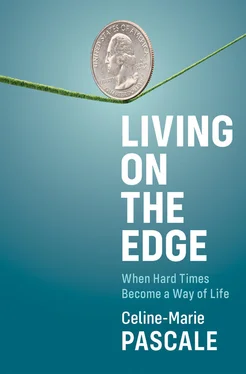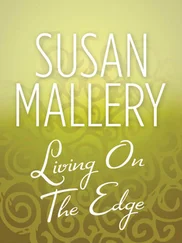1 Series page
2 Title page
3 Copyright page
4 Dedication page
5 Acknowledgements
6 Preface
7 1 The Lay of the Land
8 2 The Struggling Class
9 3 A Hazardous Life: The High Price of Being Poor
10 4 Sacrifice Zones: The Places We Call Home
11 5 Ordinary Things That Can Only Happen Here
12 6 The Burdens of Prejudice: Class and Race
13 7 The Burdens Women Face
14 8 The Face of a Movement?
15 9 The Myths We Live By
16 10 And Then, the Pandemic…
17 11 The Future We Want
18 Appendix A: Methods, Methodology, and Theory
19 Appendix B: Table of Interviewees
20 Index
21 End User License Agreement
1 Cover
2 Contents
3 1 The Lay of the Land
1 I
2 II
3 iii
4 iv
5 vi
6 vii
7 viii
8 ix
9 x
10 xi
11 xii
12 xiii
13 243
14 244
15 1
16 2
17 3
18 4
19 5
20 6
21 7
22 8
23 9
24 10
25 11
26 12
27 13
28 14
29 15
30 16
31 245
32 246
33 247
34 17
35 18
36 19
37 20
38 21
39 22
40 23
41 24
42 25
43 26
44 27
45 28
46 29
47 30
48 31
49 32
50 33
51 34
52 35
53 36
54 37
55 38
56 39
57 40
58 41
59 42
60 43
61 44
62 45
63 46
64 47
65 48
66 49
67 50
68 51
69 52
70 53
71 248
72 249
73 250
74 54
75 55
76 56
77 57
78 58
79 59
80 60
81 61
82 62
83 63
84 64
85 65
86 66
87 67
88 68
89 69
90 70
91 71
92 72
93 73
94 74
95 75
96 251
97 252
98 253
99 76
100 77
101 78
102 79
103 80
104 81
105 82
106 83
107 84
108 85
109 86
110 87
111 88
112 89
113 90
114 91
115 92
116 93
117 94
118 95
119 96
120 97
121 98
122 254
123 255
124 256
125 257
126 258
127 259
128 260
129 261
130 262
131 99
132 100
133 101
134 102
135 103
136 104
137 105
138 106
139 107
140 108
141 109
142 110
143 111
144 112
145 113
146 114
147 115
148 116
149 117
150 118
151 263
152 264
153 119
154 120
155 121
156 122
157 123
158 124
159 125
160 126
161 127
162 128
163 129
164 130
165 131
166 132
167 133
168 134
169 135
170 136
171 137
172 138
173 139
174 265
175 266
176 140
177 141
178 142
179 143
180 144
181 145
182 146
183 147
184 148
185 149
186 150
187 151
188 152
189 153
190 154
191 267
192 268
193 269
194 155
195 156
196 157
197 158
198 159
199 160
200 161
201 162
202 163
203 164
204 165
205 166
206 167
207 168
208 169
209 170
210 171
211 270
212 271
213 272
214 273
215 172
216 173
217 174
218 175
219 176
220 177
221 178
222 179
223 180
224 181
225 182
226 183
227 184
228 185
229 186
230 187
231 274
232 275
233 276
234 277
235 188
236 189
237 190
238 191
239 192
240 193
241 194
242 195
243 196
244 197
245 198
246 199
247 200
248 201
249 202
250 203
251 204
252 205
253 206
254 207
255 208
256 209
257 278
258 279
259 280
260 210
261 211
262 212
263 213
264 214
265 215
266 216
267 217
268 218
269 219
270 220
271 221
272 222
273 223
274 224
275 225
276 226
277 227
278 228
279 229
280 230
281 231
282 232
283 281
284 282
285 283
286 233
287 234
288 235
289 236
290 237
291 238
292 239
293 240
294 284
295 241
296 242
297 285
298 286
299 287
300 288
301 289
302 290
303 291
304 292
305 293
306 294
307 295
308 296
“Dr. Pascale writes with clarity, purpose, and a studied, personal understanding of the human condition. ‘The Struggling Class’ will be a term new to many, but it is, indeed, the way of life for too many others. The book should be required reading for anyone who wants to understand, in a way that is both supremely accessible and thoroughly researched, how economic, racial, class, caste, geographical, environmental, and other factors converge to create systemic inequalities designed to hold down a diverse stratum of people – from the Native residents on the Standing Rock Nation, where I grew up, to those doing their level best to make life work every day in places like Appalachia, Wind River, and Oakland. It skillfully illustrates key connective tissues that demonstrate how, despite outward differences, we share in the same struggle. In order to reinvent a democracy that works for everyone, we need radical, systemic change that begins to address the financialized, extractive colonial mentality and other, deeply embedded, cultural wrongs. Only in this way can we begin to envision a fairer, healthier future for the next generations.”
Chase Iron Eyes, Lakota People’s Law Project Co-Director and Lead Counsel
“Is there support for a living wage, free education, and other egalitarian commitments within the low-income population? Yes! In a trenchant analysis, Celine-Marie Pascale shows that egalitarian sensibilities are alive and well among low-income workers, not because they necessarily subscribe to or care about conventional political parties or platforms but because their everyday lives expose a deeply unfair system. A brilliant account of ‘hard-knocks egalitarianism.’”
David B. Grusky, Professor of Sociology and Director of the Center on Poverty and Inequality, Stanford University
“This often poignant and moving book presents a vision of America and Americans that is often missing from dominant narratives. One walks away from this book with a better sense of the diversity of average, struggling Americans, as well as what all those people have in common – the struggle. As the author says, ‘this is more than a collection of individual troubles; it is the story of a nation in a deep economic and moral crisis.’”
Allison L. Hurst, Associate Professor of Sociology, Oregon State University
“A rare book that combines a humane accounting of lives lived in hardship, attentive to race and gender, with a robust and data-driven critique of the policies that caused their dysfunction – a true bottom-up primer on American poverty with real-world applications for upturning the myths that surround inequality.”
Elizabeth Catte, author of What You Are Getting Wrong About Appalachia
“This is an impressive book, wide and deep, with diverse people around the country struggling to live. A yarn; no, yarns – economic and much more – always real, face-to-face with the author: what their lives are, sometimes doing themselves no favors, but more often the effects of laws and attitudes both far away and near, government and corporations, and the hate of people. Why it’s hard to end poverty. Living on the Edge reaches in every direction. Personal, powerful: once you pick it up, you won’t put it down.”
Читать дальше












